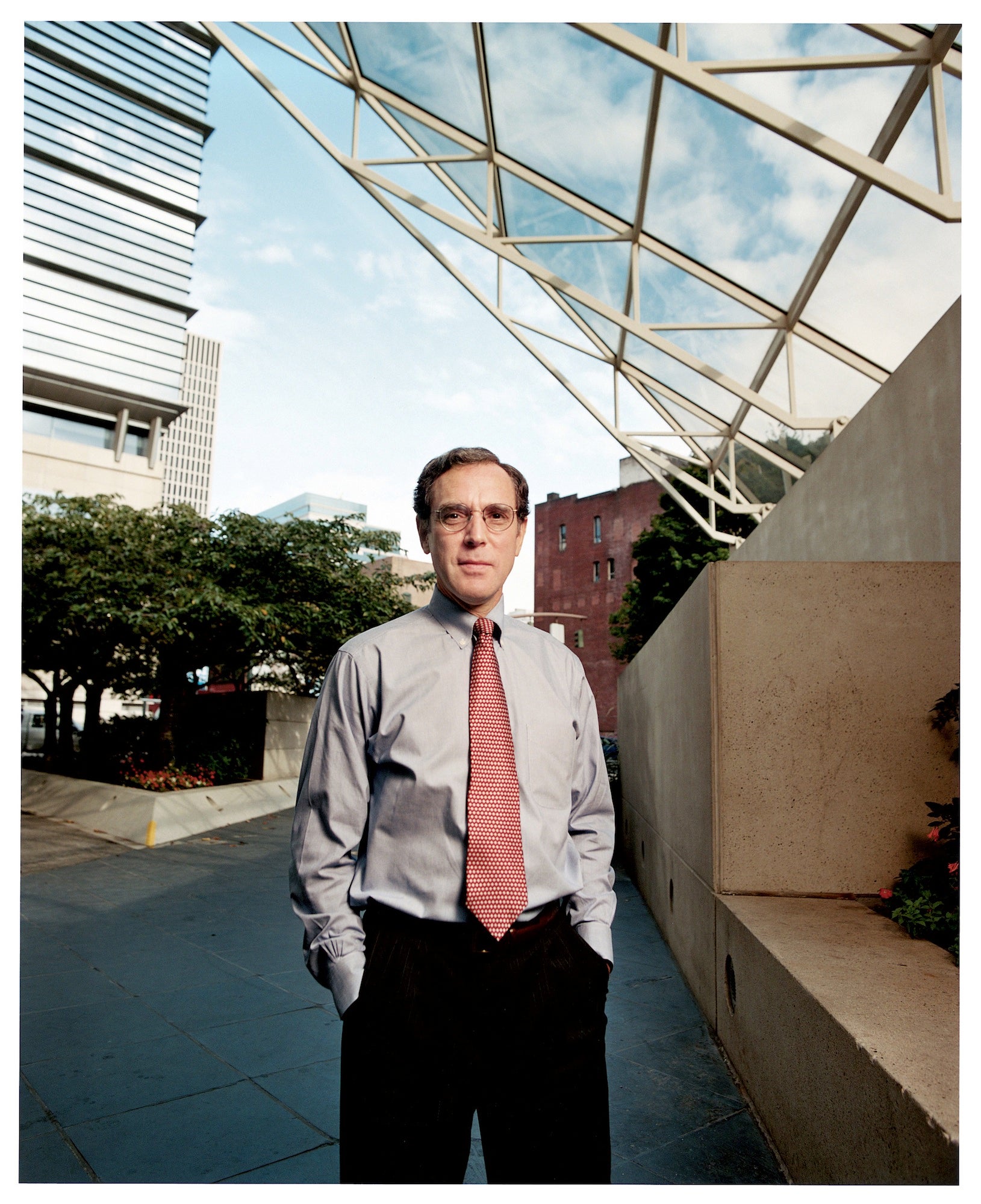Steven Wax ’73 (’74) Represents Oregon Man Held in Madrid Train Bombing
Last spring, an Oregon attorney named Brandon Mayfield was arrested by the FBI and jailed for two weeks. He was suspected of being linked to the Madrid train bombings, thanks to the FBI’s mistaken match of a fingerprint to a print found on a bag of detonators near the scene. His arrest made international headlines. He faced the possibility of multiple capital charges, and the death penalty loomed.
Then, as quickly as it began, it was over. The fingerprint was matched by the Spanish government to someone else. Mayfield was set free with an FBI apology, but by then the damage to his reputation, his business and his family life had been done.
For that reason, Mayfield’s lawyer, Steven Wax ’73 (’74), says the matter isn’t settled yet.
“What happened to Mr. Mayfield is an example of how an entirely innocent person can be harmed,” said Wax, who has served as the federal public defender for the District of Oregon for the last 21 years. “There are still many unanswered questions about how the mistake was made. Was there information that tainted the investigation? We have inquiries under way and will hopefully get to the bottom of that.”
That information, according to Wax, might include the fact that Mayfield is a Muslim or that he once represented a client in a custody battle who was later convicted of terrorism-related charges.
For Wax, the Mayfield case is about much more than mistaken identity. It is about protecting individual rights to privacy and the right to due process as the government’s investigative powers have grown under the USA Patriot Act. It is, in short, the kind of case that reminds Wax why he continues to serve as a public defender.
“It’s about being in a position to help people one-on-one and, in doing so, to stand against the government with the individual at what is the cutting edge of the definition of individual liberty,” he said.
Wax is no stranger to high-profile cases–he assisted the Brooklyn district attorney in the case against serial killer David “Son of Sam” Berkowitz in 1977–but he found the Mayfield defense particularly challenging.
“It was the most intense two weeks of my legal career,” he said. “We were dealing with a situation in which Mr. Mayfield was arrested on a material witness warrant, but what was on the table was capital prosecution for the mass murder in Spain. Because American citizens were killed in the train bombings, the U.S. has jurisdiction to prosecute and the statutes listed carried the death penalty.”
At least Mayfield was given his due process, says Wax, something that others suspected of terrorism have not always been afforded.
“One of the concerns we had was that the government would do to Mr. Mayfield what it had done to Mr. Hamdi and Mr. Padilla,” said Wax, referring to the two Americans held in military prison for over two years without charges. “He’d be taken out of the system.”
Though Mayfield is now free, Wax says he has suffered greatly as a result of the FBI’s mistake. In addition to his harrowing time in detention, made worse when inmates learned he was a suspected terrorist, the government has said it disseminated information about Mayfield, his family and possibly his clients to federal intelligence agencies. And he is still waiting for the FBI to return copies of personal property–including papers and computer drives–and office files confiscated after his arrest.
“Through Mr. Mayfield, a very human face is put on the harm that can come when we ignore or diminish individual rights in the fight on terror,” said Wax. “I think we should have more confidence in the legal system we have had in this country for more than 200 years. We don’t need to jettison it or give up rights in order to combat the evil of terrorists.”
